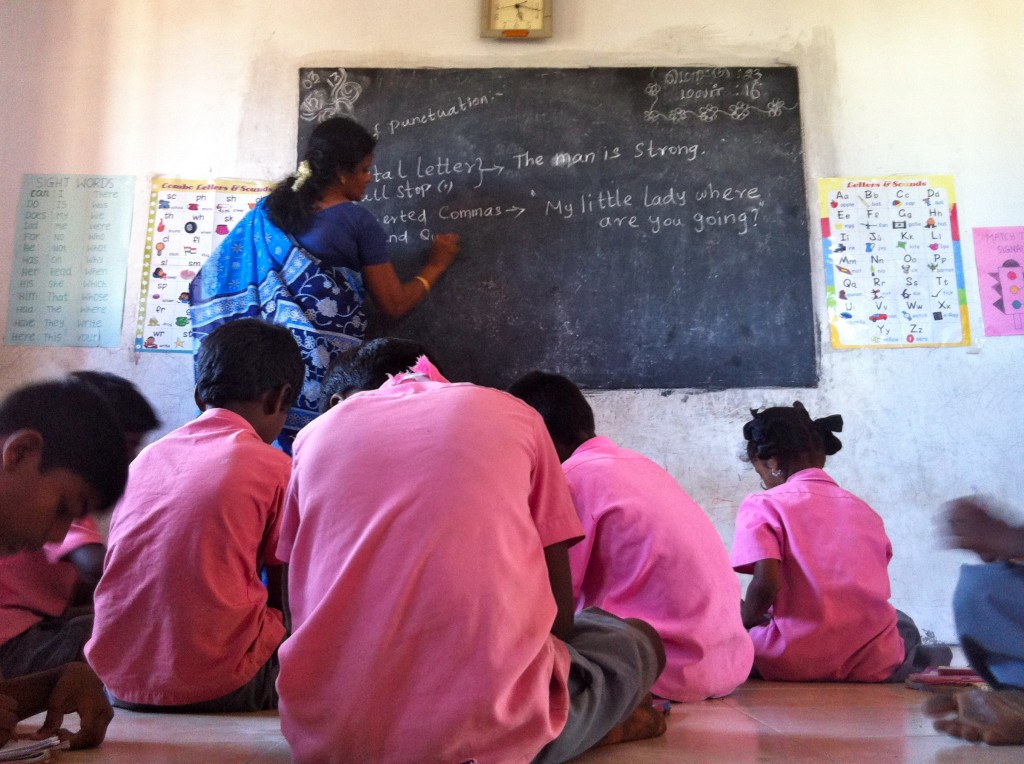
This article is part of a series of articles written by Mathujitha Sankaran about her experiences during the year abroad she has spent in India. Click here for part one, part two, part three, or part four.
There is no singular, binding essence to India. Languages vary state to state, dialects emerge district to district, religious rituals, idols, dietary habits vary throughout the country, and the facades of landscapes abruptly change as you travel. India’s geographical, cultural, and linguistic topography are in constant flux. It is this flux that remains resistant to ‘singular essentialism’: the idea that “India” or “Indian” can be delineated. The demands of globalization and the increase in foreign investment, however, have led to a reshaping of this multilingual and pluralistic–scape. Amidst the diversity and intricacies, English has materialized to become the new lingua-currency. It used to be that English was the language of the upper-class elites and the means to toy with the sophisticated ideals of being “Westernised”. That pride continues to take place in a more precarious form where the ability to speak English is aligned with the idea of betterment. It is of my stance that aside from the many opportunities that “English” promises, the self-esteem boost is essentially more of an influence in the alteration of rural education.
The Eureka Model Primary Schools, which are managed by the NGO, Eureka AID India, have decided to make a linguistic leap. The schools for this year will make the transition from being a Tamil-medium school to an English-medium. This change radically alters the pedagogic philosophy of the schools, whereby understanding, regardless of pace, is key to learning. Several of us had a discussion with the co-founder and he made a stellar point : “Sure, nascent minds are able to grasp languages better. However, it does not change the fact that learning in one’s native language is the best way to learn.” Understanding is essential to learning, hence if the language of instruction changes, the presentation of the subject content will look and feel different to the child. This can cause discomfort in the process of learning.
This is one perspective––the other perspective is to look at the way the NGO is expanding the opportunities for the child.
This brings to light the concept explicated by Martha Nussbaum and Amartya Sen known as the ‘capability approach’. The idea is that development should be more than churning economic growth for the individual. Sen prioritizes economic expansion as it can usher in more opportunities for the individual and Nussbaum prioritizes humanistic education as it can enable human flourishing and growth in democratic citizenship. Which of the two is more relevant in the context of the transition the Eureka Schools have made? It is reductive to think that the decision was formulated on the basis of economic pragmatism. Then again, mobility is more of a possibility. When a young adult is fluent in languages other than his or her mother tongue they can move to a metropolitan area and feel at ease with working in an urbanite environment. But I am skeptical as in the case of Tamil Nadu, where the population is largely homogenous and where its politics is heavily infused with the symbol of Dravidian identity. English fluency there can be an incentive for but not a necessary step towards the improvement in one’s socio-economic status.
With these perspectives in mind, it remains unclear if learning in English is indeed a upliftment to the poorer strata of society. Nonetheless, providing an opportunity is more desirable than making no attempts to refashion the pedagogy of the school according to the trends of the contemporary society. Keeping up with the demands of society is an important aspect of managing a school but it highlights a larger problem. It appears to me that knowing English is not exactly co-related to expansion of employment prospects but to the expansion of one’s confidence. The NGO made the transition because the parents made demands for the children to be able to speak English. Why did they make the demand? Parents are filled with pride that their child is blabbering away in a language associated with betterment. But betterment in what sense? Status-quo? Knowledge? Quality of life? It remains inconclusive.
